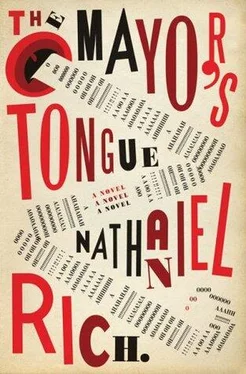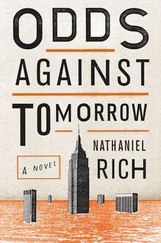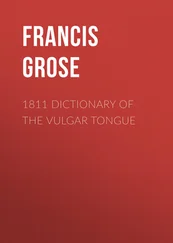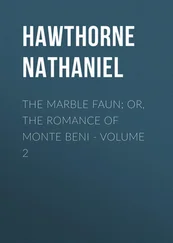Eugene told Alvaro about his new job that night over two steaming bowls of menudo, which Alvaro had smuggled from his wife's house in a large Tupperware container. He didn't seem to take the news too badly.
"You weren't cut out for manual labor anyway. It's OK, we're still friends."
"I thought you'd understand. You understand, right?"
"This came in the mail for you."
Alvaro handed him a long brown envelope that was stamped with red ink. It had been forwarded to Eugene from the post office box he had registered in Jupiter, Florida. He tore it open and removed a piece of his father's pale-blue stationery. "Piero Odolfo Brentani" was embossed in elegant, slender gold print across the top of the page.
Dear son,
Eugenio,
It's about time I wrote. I had misplaced the address you gave me but have now found it. I hope Florida is fine. New York is. Today a plumber arrived to fix the bathroom sink, which has been giving me trouble ever since you left but now it is better, thanks to the plumber who came today. How are you? Have you found a job?
Are you learning? Let me know how you are.
With love,
Sig. Brentani,
Your Babbo
"From your father?" asked Alvaro. Eugene looked up.
"You're not going to believe this. It's from my father."
"Can I read it? One's handwriting can be quite revealing—"
"What's in this anyway?" asked Eugene, spooning a sharp-nailed claw out of his red, steaming broth. He set it on the table next to the bowl.
"Gracias," said Alvaro, as he took both the piece of pig's foot and the letter from Eugene.
"This note is quite revealing, actually," said Alvaro. His clenched mouth emitted a sucking noise and Eugene could see a porcine toenail poking through his cheek. "It looks as if it was written by a child. It seems that you must have been the adult in this relationship. He must be sick without you."
"You know, I sometimes wonder what the hell you're talking about. It sounds like your mouth is full of crackers. You might as well be telling me to screw myself."
"I have a feeling you're not talking about your father anymore."
"Ah well. I'll be spending a lot more time at old man Chisholm's house from now on."
"If you are maligning me, then you can go screw yourself."
Eugene smiled at Alvaro, as he pried a piece of fatty tissue from behind his molars with the point of his knife. Alvaro smiled back.
"You like menudo, huh? You'd never guess what's in it."
"Alvaro, I have to tell you about this girl at the new job, Abe's daughter. Gray eyes, long reddish-brown hair, beautiful skin, a wide smile—"
"Intestines. Feet. Gut juice. Dried pork skin."
"You said it — she's stunning."
The job was not particularly demanding, especially coming after the arduous work at Aaronsen and Son. Often, after lunch, Abe would ask Eugene to lower the shades, complaining, "The sun at this hour is staring me right in the eyes!" Then Abe would bend over on his papers and fall asleep with his cheek on his desk. And a deep slumber it was. After some cautious experimentation, Eugene determined that nothing would be able to rouse him, short of a defibrillator. In these moments of calm, Eugene tried to work on his translation of Alvaro's manuscript. It was coming slowly. The more he stared at Alvaro's muddied text, the more confused he became, until his frustration reached such a pitch that he considered abandoning the project altogether. But whenever he got to this point of despair, he recalled Eakins's "Keftir the Blind," the short story he was reading the day Alvaro first showed him his manuscript. In his word blindness and his struggle to understand what Alvaro had written, Eugene could sympathize with the grasping, angry Alain Keftir and his wrecked eyes.
In Eakins's story, Keftir is a blind artist who has become moderately famous for his effulgent, kaleidoscopic paintings and his assiduous technique. In preparation for any painting, he studies his subject with great devotion. Eakins is meticulous about this point. For Keftir's famous landscape series of Kansas cornfields, for instance, the artist collects agricultural histories of the state and annual USDA reports on crop yields dating back fifty years (and has them translated into Braille). He questions farmers about their harvesting techniques, the equipment they use, their family histories, and what they daydream about in the fields. He dresses in the farmers' dungarees while he paints. He sleeps in the fields, listens to the wind soughing through the stalks and weeds. He has an affair with a farmer's daughter. He eats corn: corn pone, corn mash, corn on the cob, corn chips, corn syrup. He licks atrazine off of a stalk.
Although his landscapes sell well, Keftir receives his highest commissions for his portraits. Many of his wealthy subjects simply pay for his company. It is just as gratifying to have a charming, humble man listen attentively to one's every murmur and explore every nook of one's home for inspiration as it is to have a portrait of oneself painted. Besides, Keftir's portraits, as Eakins describes them, are not particularly accurate. They mostly consist of splotches of bright color melded together by fine brushwork. Still, the result is impressive for a blind man. His admirers and his subjects agree that some essential character has been captured in these lively amalgams of light and color that an ordinary, "seeing" painter might not have achieved.
Still lifes are easiest for Keftir. Preparation for a fruit bowl painting, for instance, takes no more than an afternoon of fondling the fruit and the bowl, tasting the fruit, and gently pressing the fuzz of a peach skin against his eyes. His favorite subject, in fact, was a still life: a glass filled with water. To Keftir, this was the most pleasing image, perfect in its simple serenity. And yet there is also something infinite and inaccessible about it, since he has no way of determining the exact contours of the water in the glass. As soon as he touches the water, no matter how delicately, its shape fluctuates, becomes something new. The more his paint-stained fingers try to approximate the shape of the water, the more he disrupts it. This inability to understand his subject obsesses him, and he returns to the water glasses again and again, between larger projects, whenever he seeks inspiration. By the end of his career, in fact, he has lost interest in all other subjects.
Despite his many repetitions, the paintings of water glasses are wildly inconsistent. Sometimes he paints large canvases in which a whole ocean of blue and white swash against the sides of a thin glass, raging like a tsunami. Other times the glass itself takes on gigantic proportions, becoming an immense border that subverts the water, simplifying it into abstract shapes. Occasionally, however, what Eakins calls the "waterglass paintings" seem to depict other scenes altogether: a naturalistic portrait of a line of Union soldiers posing in full regalia before a battle; a vista of the Moab desert, complete with cacti prickling the big country sky; a classical rendition of the Pietà. But in each case Keftir would stubbornly deny that he had drawn anything other than the very glass that was sitting on the table in front of him and which his assistant had filled with tap water just an hour earlier.
The tone of the story shifts dramatically when a man in a white lab coat appears at Keftir's door, introducing himself as one Dr. Anton Sorokin. Keftir tells him he no longer does portraiture and begins to close the door in his face, but the visitor blocks it with his foot.
"That's not what I'm here for," he says. "I'm not just an admirer— I'm an ophthalmologist."
Keftir invites him inside, and after some polite conversation, Sorokin explains the reason for his visit: he's developed a new procedure that may allow Keftir to regain his vision.
Читать дальше












